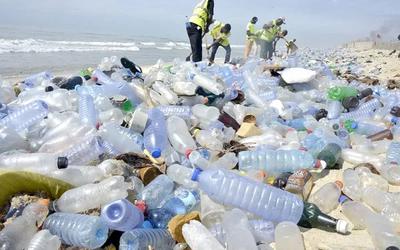- Home
Ghana’s Case: Tackling Plastic Pollution in Ghana’s Oceans
March 20, 2025
World Water Day, observed annually on March 22, highlights the importance of freshwater
resources, with this year’s theme focusing on glacier preservation. Glaciers, found in polar
regions like Antarctica and the Arctic, as well as high-altitude mountains such as the Himalayas,
Andes, and Alps, are vital freshwater reservoirs. They supply water for drinking, agriculture, and
ecosystems, and regulate global climate. However, glaciers are rapidly declining due to climate
change, rising temperatures, and human activities. This threatens water security for millions. To
protect glaciers, urgent actions such as reducing greenhouse gas emissions, promoting
sustainable practices, and supporting global climate agreements are needed.
On this Day, Ghana’s water resources demand attention due to the significant impact of human
activities on their sustainability. The ocean, a vital resource, plays a crucial role in the economy,
food security, and livelihoods. Highlighting its importance is essential to ensure the preservation
and sustainable management of the ocean for future generations.
Ghana’s coastline stretches over 550 kilometres along the Gulf of Guinea, boasting rich marine
biodiversity and ecosystems that support about 7 million livelihoods. However, the ocean faces a
growing threat: plastic pollution. Studies reveal that Ghana generates approximately 1.7 million
tons of plastic waste annually, with a significant portion ending up in the ocean. According to a
2020 report by Our World in Data, Ghana is among the top contributors to marine plastic
pollution in Africa. It is estimated that about 2% of global ocean plastic waste originates from
Ghana, which translates to tens of thousands of metric tons of plastic entering the ocean each
year. Coastal cities like Accra and Takoradi are particularly affected, with beaches and
waterways clogged by plastic debris. This pollution not only harms marine life but also disrupts
the delicate balance of Ghana’s marine ecosystems, which are home to diverse species of fish,
turtles, and seabirds.
The ocean is indispensable to Ghana, driving economic growth and ensuring food security. Over
10% of Ghanaians depend on fishing and related industries for their livelihoods, while the ocean
supports tourism, trade, and transportation, contributing significantly to national revenue. Marine
ecosystems also play a vital role in climate regulation and protecting coastlines from erosion. For
coastal communities, the ocean is a lifeline, providing income, nutrition, and cultural
significance.
Despite its importance, the ocean is under threat from human activities, particularly the improper
disposal of plastic waste. In Ghana, inadequate waste management systems, coupled with
widespread use of single-use plastics, have led to rampant pollution. Markets, households, and
industries often discard plastics indiscriminately, which are then carried by wind and rainwater
into rivers and eventually the ocean. Additionally, fishing communities contribute to the problem
through the abandonment of fishing nets and gear, known as “ghost nets,” which continue to trap
marine life long after being discarded.
To protect Ghana’s oceans from plastic pollution, the government must enforce stricter
regulations on plastic production and waste management, including bans on single-use plastics
and incentives for recycling. Public awareness campaigns must be done to educate citizens on
the impact of plastic pollution and encourage behavioural change. Community-led clean-up
initiatives, such as those organized by local NGOs, can also help restore beaches and waterways.
Furthermore, investing in innovative solutions, such as biodegradable alternatives and waste-to-
energy projects, can reduce the reliance on plastics. We can ensure that their oceans remain a
source of life and prosperity for generations to come by working together.
On this World Water Day, let us reflect on the urgent need to protect our oceans from plastic
pollution. The health of Ghana’s oceans is not just an environmental issue but a matter of
national importance. By taking action today, we can safeguard this precious resource for the
future.
The author, Solomon Amfoh, is a Senior Environmental Officer at the Institute of Green
Growth Solutions, Accra

-
July 14, 2025
-
June 5, 2025
-
March 22, 2025
-
March 21, 2025
-
March 20, 2025
-
Oct. 1, 2025
6 a.m. - 6 p.m. -
Aug. 28, 2019
9 a.m. - 5 p.m. -
Aug. 23, 2018
8:30 a.m. -
Oct. 31, 2017
9 a.m. - 3 p.m. -
March 17, 2017
10 a.m. - 3 p.m.



